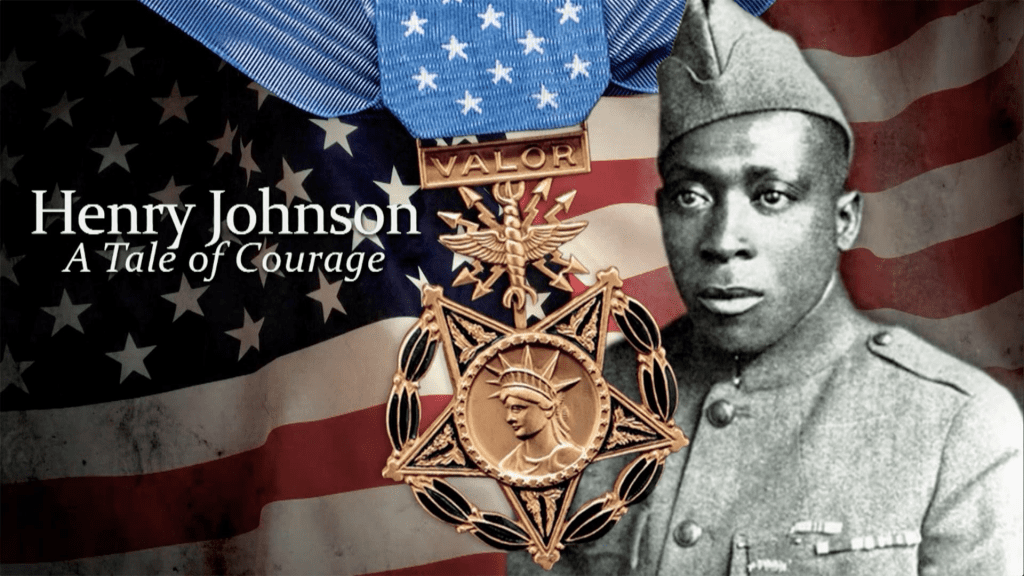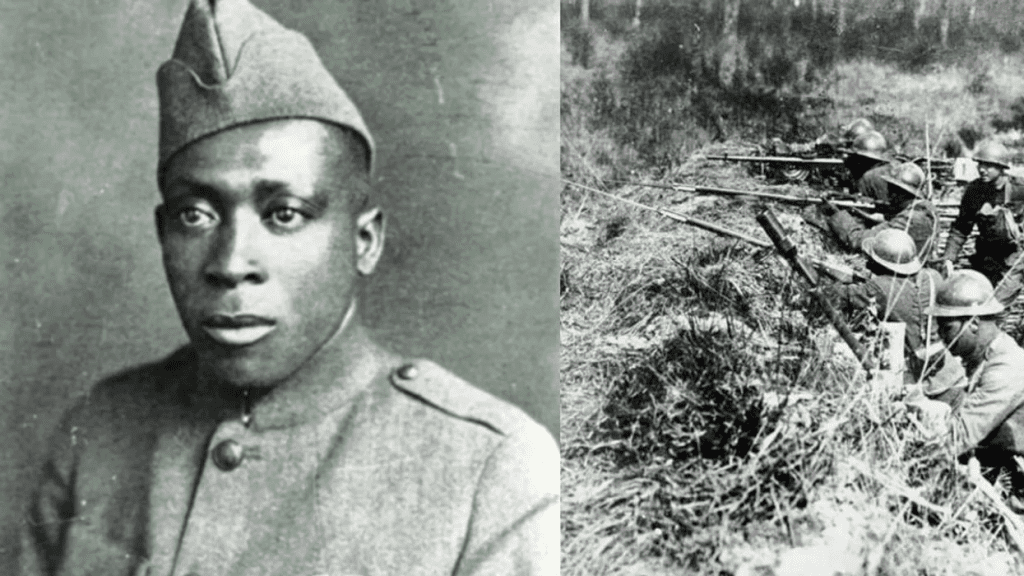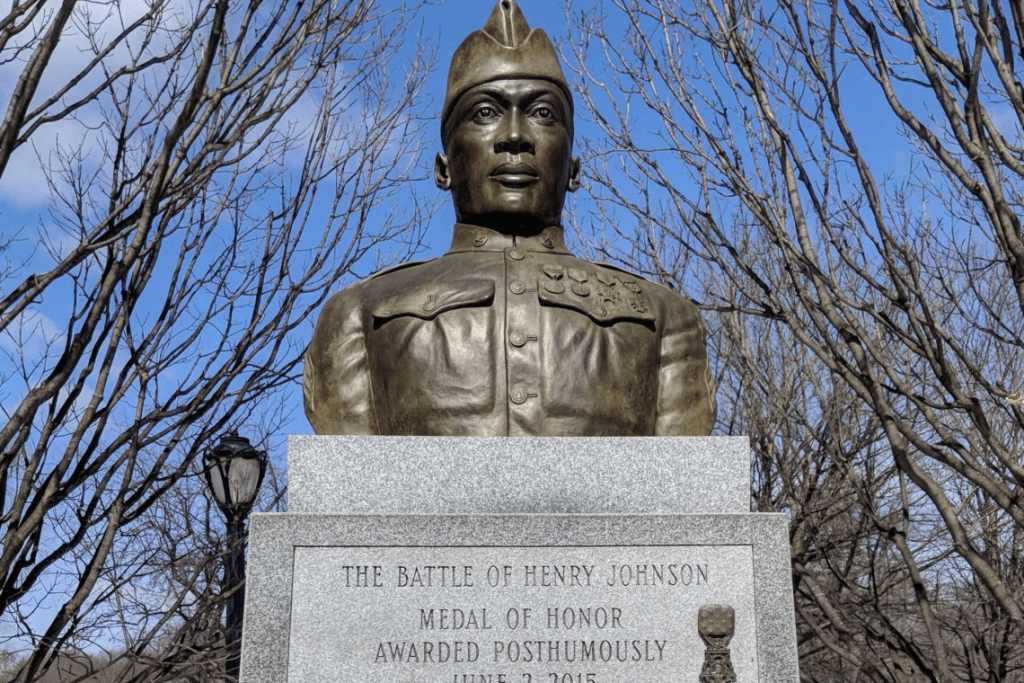In the early morning darkness of May 1918, in the dense forests of France, a young Black soldier from Albany, New York, faced what most would call certain death. Armed with only a rifle, grenades, and a knife, Henry Johnson took on a raiding party of 20 German soldiers alone. His story is one of extraordinary bravery, racial injustice, and delayed recognition that still resonates more than a century later.

A Hero Born in a Divided Army
Henry Johnson was a private in the 369th Infantry Regiment, famously known as the “Harlem Hellfighters.” This was a unit of mostly African American soldiers who served under French command because the U.S. military at the time still segregated Black troops and often refused to allow them to engage in combat.

Johnson and his unit were sent to the front lines in France, where they quickly earned a reputation for fierce fighting. But nothing would define Johnson’s legacy more than the night of May 14, 1918.
Video:
Henry Johnson And The Harlem Hellfighters I WHO DID WHAT IN WW1?
The Midnight Ambush
That night, Johnson was on sentry duty with fellow soldier Needham Roberts. Suddenly, a German raiding party of more than 20 men launched a surprise attack. Roberts was quickly wounded, leaving Johnson to fight nearly alone. He fired at the enemy until his rifle jammed, then hurled grenades until he ran out. Still not giving in, he pulled out his knife and continued fighting in brutal hand-to-hand combat.
By the end of the ambush, Johnson had killed at least four enemy soldiers and wounded many others. He saved Roberts from being taken prisoner and held the line until reinforcements arrived.

France Honors Him First
The French military immediately recognized Johnson’s heroism. He became the first American soldier to receive the Croix de Guerre, France’s highest award for valor. They called him “The Black Death” for his unmatched courage. Back home, however, the U.S. Army downplayed the event, and Johnson was denied the Medal of Honor or even a Purple Heart during his lifetime.

Return to Injustice
After the war, Johnson returned to America and was celebrated briefly, even appearing in a military parade in New York. But like many Black veterans, he soon faced discrimination and economic hardship. His wounds from battle were severe, yet he received no military disability pay. By the 1920s, Johnson had lost his job, and by 1929, he died destitute and largely forgotten at the age of just 32.

A Legacy Finally Recognized
It would take decades for Johnson’s heroism to be formally honored by his own country. In 1996, he was posthumously awarded the Purple Heart, and in 2003, the Distinguished Service Cross. But the highest military honor still eluded him.
Video:
The Harlem Hellfighters | History
That changed in 2015, nearly a century after his act of heroism, when President Barack Obama posthumously awarded Henry Johnson the Medal of Honor. In a moving White House ceremony, Obama stated, “Henry Johnson displayed the kind of courage that made history.”
Why His Story Matters Today
Henry Johnson’s story is not just about individual bravery it’s about a nation’s long struggle with race, recognition, and justice. For too long, his sacrifice was buried beneath layers of prejudice and indifference. His tale reminds us of how many heroes of color went unrecognized for generations, despite risking everything for a country that often denied them basic rights.
His fight didn’t end in that trench it continued through the silence of history. And finally, justice caught up.

Conclusion
Today, Henry Johnson stands as a symbol of grit, valor, and the long-overdue respect owed to Black soldiers who gave everything for a nation that wasn’t always willing to fight for them. His courage on that dark night in France should never be forgotten, not just because he fought 20 men and lived but because he stood alone, and he never backed down.
Let his story live on. Let it remind us that history, no matter how delayed, must tell the truth.


